One of the fields called "resources" has the following 2 inner documents.
{
"type": "AWS::S3::Object",
"ARN": "arn:aws:s3:::sms_vild/servers_backup/db_1246/db/reports_201706.schema"
},
{
"accountId": "934331768510612",
"type": "AWS::S3::Bucket",
"ARN": "arn:aws:s3:::sms_vild"
}
I need to split the ARN field and get the last part of it. i.e. "reports_201706.schema" preferably using scripted field.
What I have tried:
1) I checked the fileds list and found only 2 entries resources.accountId and resources.type
2) I tried with date-time field and it worked correctly in the scripted filed option (expression).
doc['eventTime'].value
3) But the same does not work with other text fields for e.g.
doc['eventType'].value
Getting this error:
"caused_by":{"type":"script_exception","reason":"link error","script_stack":["doc['eventType'].value","^---- HERE"],"script":"doc['eventType'].value","lang":"expression","caused_by":{"type":"illegal_argument_exception","reason":"Fielddata is disabled on text fields by default. Set fielddata=true on [eventType] in order to load fielddata in memory by uninverting the inverted index. Note that this can however use significant memory."}}},"status":500}
It means I need to change the mapping. Is there any other way to extract text from nested arrays in an object?
Update:
Please visit sample kibana here...
https://search-accountact-phhofxr23bjev4uscghwda4y7m.us-east-1.es.amazonaws.com/_plugin/kibana/
search for "ebs_attach.png" and then check resources field. You will see 2 nested arrays like this...
{
"type": "AWS::S3::Object",
"ARN": "arn:aws:s3:::datameetgeo/ebs_attach.png"
},
{
"accountId": "513469704633",
"type": "AWS::S3::Bucket",
"ARN": "arn:aws:s3:::datameetgeo"
}
I need to split ARN field and extract the last part that is again "ebs_attach.png"
If I can some-how display it as scripted field, then I can see the bucket name and the file name side-by-side on discovery tab.
Update 2
In other words, I am trying to extract the text shown in this image as a new field on discovery tab.
